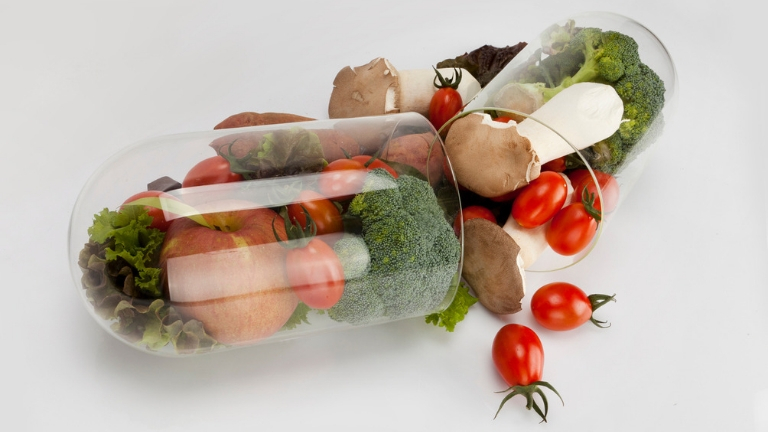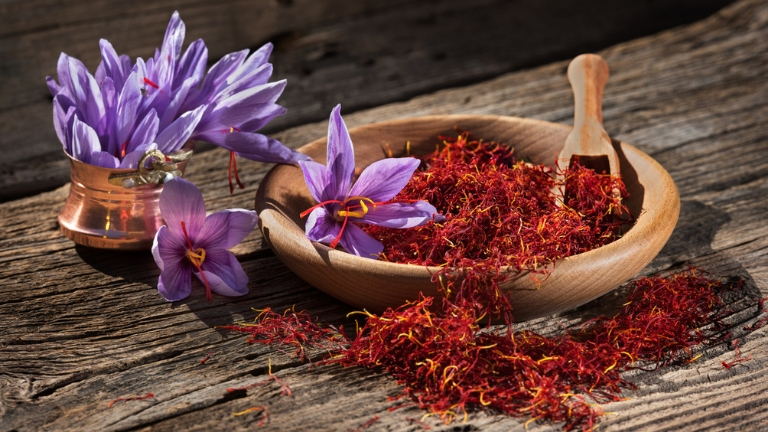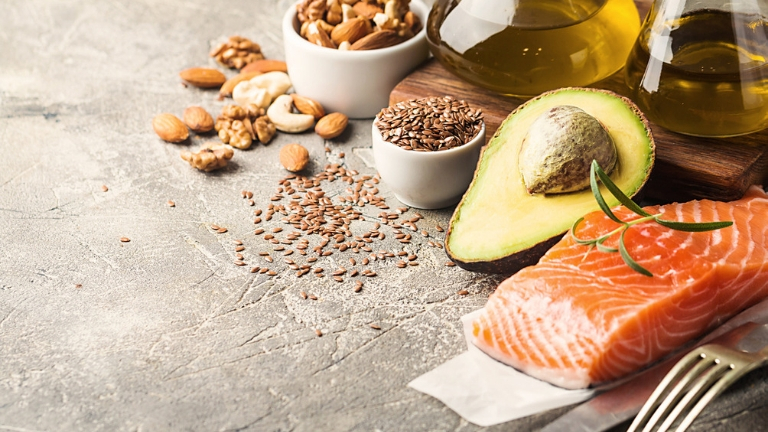New findings from the University of Sussex in Brighton, U.K. suggest that adults with depression and other mental illnesses could see memory problems later in life. Editor Anna Magee finds out which nutrients can help depression, anxiety to possibly lower the chance of memory loss
It’s rare a day goes by without a mental health-related story making the news. But lately it seems the conversation has been particularly focused on issues relating to mind, therapy and mental illness.
Earlier this week it was revealed that adults who have depression and or anxiety have a higher risk of memory loss by the age of 50.
According to Medical News Today, ‘The researchers used a word-recall test to assess the participants’ memory, and they also evaluated each person’s verbal memory, verbal fluency, information-processing speed, and information-processing accuracy’.
The University of Sussex research team hopes that the government will now invest more in mental health services to lower the risk of repeated episodes of depression and anxiety.
As more and more high profile people come out about their own mental health struggles, the rest of us don’t feel so alone.
READ MORE: 6 celebrities you didn’t know have OCD
Tireless mental health advocate, Prince William for example, last week revealed that all the celebrities he asked to back his mental health charity, Heads Together, declined. There is nothing shameful in talking about mental health or admitting to living with any form of mental illness.
READ MORE: Mental health fixes – 13 women share what makes them happy
Diet and depression – new findings
But perhaps most excitingly, last week the University of Manchester published new research based on data from over 46,000 people that found that weight loss, nutrient-boosting and fat reduction diets can all reduce the symptoms of depression.
The new study, published in Psychosomatic Medicine, brought together all existing data from clinical trials of diets for mental health conditions and found that making simple changes such as eating more nutrient-dense meals which are high in fibre and vegetables, while cutting back on fast-foods and refined sugars could help alleviate symptoms of depression and anxiety, especially in women.
Now too, researchers in Belgium have also discovered that microbes that live in our guts may have impact on our mental health, paving the way for the use of probiotics in the treatment of mental illness.
It all starts with your lifestyle, though. ‘Changing your diet to one that is rich in colourful vegetables, good fats such as oily fish, nuts and seeds, avocado and cold-pressed oils, while also engaging in regular exercise and stress-reducing strategies such as yoga, meditation or mindfulness can have a huge impact on the whole body, including mood,’ says Biocare clinical nutritionist Marta Anhelush.
3 nutrients your brain needs
However, certain nutrients are essential to your brain’s functioning and being aware of where to get them can help you to support your mental health.
‘The brain is one of the most nutrient-dependent organs in the body,’ says Anhelush. ‘It relies on multiple nutrients to maintain its diverse function and deliver messages between neurones that pass on information from one area to another.’
Those chemical messengers, known as neurotransmitters, are often made of amino acids which are found in protein.
VITAMIN B12 AND FOLATE
‘But in order to use those amino acids to make neurotransmitters, a number of nutrients are often required as co-factors, namely vitamin B12 and folate, as well as zinc and magnesium,’ Anhelush explains.
There are multiple studies linking both B12 and folate deficiency to mental health problems. ‘These are the key nutrients involved in methylation, a process that not only helps the body make neurotransmitters such as serotonin and dopamine associated with mood, motivation and cognition, but also helps support the formation of phospholipids, which are the building blocks of nervous tissue and myelin – the fatty sheath that insulates our neurons – making them essential to brain health,’ says Anhelush.
Indeed, studies have linked impaired methylation to depression, anxiety, bipolar disorder and schizophrenia.
Found in: fish, poultry, eggs, dairy, asparagus, broccoli, liver, spinach, beans and citrus fruits. Or try Biocare’s Nutrisorb Liquid Methyl FolGuard (£22.60 for 15ml) a high potency liquid supplement of optimally bioavailable, metabolically active forms of vitamin B12 (as methylcobalamin) and folate (as methylfolate) to support healthy methylation.
VITAMIN D
A lack of vitamin D has been associated with depression, anxiety and even psychiatric disorders such as schizophrenia.
‘Vitamin D acts as a hormone in the body and regulates hundreds of genes, a lot of which aid nervous function, including dopamine production, for example,’ says Anhelush. Dopamine is a neurotransmitter that governs the reward and pleasure systems in the brain.
If you have ever gone on holiday and instantly felt happier and more relaxed, this is not only about being away from the stresses of everyday life but about the instant shot of vitamin D we get from being in a hot country and most of our vitamin D is made when our skin is exposed to sunshine.
‘Unfortunately, most of us in the UK are deficient in vitamin D, especially during the winter months,’ says Anhelush.
Found in: Fatty fish such as tuna or salmon, beef liver, cheese, egg yolks, shrimp, mushrooms, oysters.
8 nutrients that can help your mental health
Other nutrients, like those below may not be essential to your brain’s functioning but they can help with the way it manages mental health problems such as depression as well as anxiety and stress. And they all have research connecting them with positive mental health effects.
THEANINE
This is an amino acid found primarily in green tea that has a calming effect on the nervous system.
‘Theanine’s calming effects are mainly because it supports levels of GABA, a neurotransmitter that promotes alpha waves in the brain, which are associated with relaxation,’ says Anhelush. It’s also been associated with improved sleep with one study specifically finding that 400mg a day could improve the sleep quality of boys aged 8-12 who had ADHD.
Theanine also appears to reduce the levels of the stress hormone cortisol in our bodies, which might be why several studies have found that doses of 200mg a day could help to reduce anxiety symptoms.
Found in: green tea. Or try Biocare’s NT Complex (£25.96 for 60 capsules) with L-theanine, lemon balm, chamomile, lavender, magnesium taurate and B-vitamins.
LEMON BALM
This herb has been used for centuries to help with stress, low mood and other related problems.
In one study, lemon balm extract showed significant reductions in anxiety symptoms, stress and insomnia within two weeks.
‘It can also help with memory and cognitive performance, as well as hyperactivity in children,’ Anhelush points out.
How to use lemon balm: Lemon balm tea is probably the easiest option, otherwise it’s hard to get the fresh herb. Try Clipper Organic Camomile and Lemon Balm tea £2 from Healthista Shop.
SAFFRON
The spice saffron has been used in studies of people with depression with good results, says Anhelush. One of these was done on patients with bipolar disorder, which could help to improve symptoms.
Though no one is certain how its antidepressant properties work, it’s been suggested that they may be down to its neurotransmitter-balancing, antioxidant and anti-inflammatory effects.
MAGNESIUM
Magnesium has multiple functions in the nervous system, so a deficiency can have widespread repercussions, says Anhelush. ‘Magnesium also blocks glutamic acid receptors (excess glutamic acid, which results from high stress, can make you anxious and restless).’
Magnesium is also essential to healthy sleep. One randomised, placebo-controlled clinical trial on 46 adults with insomnia published in 2012 found that 500mg magnesium taken daily for eight weeks improved sleep quality, and also reduced waking through the night in study subjects.
So which form is best, with so many magnesium types to choose from? ‘I would recommend magnesium taurate to support mood and nervous system, as it can help the production of GABA, mentioned above.’
Found in: spinach, kale, figs, avocados, bananas, raspberries, black beans, chickpeas, kidney beans, peas, broccoli, cabbage, green beans, artichokes, asparagus, brussels sprouts, salmon, and tuna.
5-HTP
A form of tryptophan, 5-hydroxy tryptophan (5-HTP), is a pre-cursor to the neurotransmitters serotonin, essential to mood and melatonin production, which regulates sleep.
‘This substance may be effective for depression because it can help with serotonin production, however the serotonin ‘chemical imbalance’ theory of depression is now much debated among neuroscientists and supplementation with this may not be enough as a stand-alone support,’ says Anhelush.
‘A more holistic approach, which includes dietary and lifestyle changes, as well as targeted support for reducing inflammation and improving the balance of gut bacteria, is often necessary, when it comes to supporting depression naturally.’
Found in: meat, fish/crab, seaweed, spinach, bananas, dates, eggs, oats, pumpkin seeds.
OMEGA-3s
Our brain and nervous system tissue are predominantly made up of fat, in particular, the two omega fats known as EPA (eicosapentaenoic acid) and DHA (docosahexaenoic acid).
Both of these are found abundantly in oily fish and smaller amounts are found in algae and high-quality, grass-fed meat.
‘Omega-3 fatty acids may indeed help alleviate symptoms of depression,’ says Anhelush. In fact, one meta-analysis looked at 13 different trials on omega-3s and depression and concluded that omega-3s were a potential treatment for depressive disorders.
When looking for a fish oil, make sure it is provided in a natural concentration, which will vary depending on the type of fish used) and in a natural triglyceride form. The manufacturer should be able to provide you with that information. Generally, around a gram of EPA and DHA combined is a good daily dose.
Found in: wild salmon, mackerel, sardines, herring, trout, walnuts, chia seeds, flax seeds.
B VITAMINS
These are particularly important for the regulation of mood, stress and metabolism, Anhelush asserts. Vitamin B2, B6 and folate are particularly important for methylation – see above – and vitamin B6 is essential to the body’s production of the neurotransmitters serotonin, dopamine and GABA.
Found in: whole grains, red meat, poultry, fish, eggs, milk, cheese, beans, lentils, sunflower seeds, almonds, and broccoli. B12 is only found in animal products, so if you are vegan, make sure you supplement with this nutrient daily to avoid deficiency. Or try Biocare Neuro Complex (£28.96 for 60) a high potency combination of sage, rosemary, saffron, alpha lipoic acid, carnitine, phosphatidylserine, with zinc and vitamin B5 to support nerve health and cognition.
PROBIOTICS
The billions of gut bacteria that reside in our bodies, mainly in the digestive tract play an integral role in our overall wellbeing and increasingly, researchers are discovering this includes our mental health.
‘Though their regulation of a healthy barrier; preventing the entry of potential toxins and food by-products into circulation, probiotics have a protective impact on the brain by reducing general toxic load and inflammation,’ Anhelush explains.
Some bacteria also help us to make neurotransmitters such as serotonin, GABA and dopamine and the ‘brain-gut’ axis is something researchers are increasingly discussing in relation to psychological behaviour and how we respond to stress.
‘Probiotics have been shown to help improve anxiety symptoms, and reduce cortisol,’ Anhelush explains. ‘In-vitro and animal studies have also shown how certain strains of the bacteria Lactobacillus and Bifidobacterium, including one called L. rhamnosus, can produce the neurotransmitter GABA.
Found in: fermented foods such as sauerkraut, live yoghurt, kefir (a fermented milk drink) and kimchi (Korean pickled vegetables).
More Healthista Content
3 healthy dinner recipes to help you sleep
Face yoga exercises for a natural facelift in 3 minutes
Mindfulness and running – the therapy that could change your life
3 ways to lose weight without really trying
Like this article? Sign up to our newsletter to get more articles like this delivered straight to your inbox.

























































